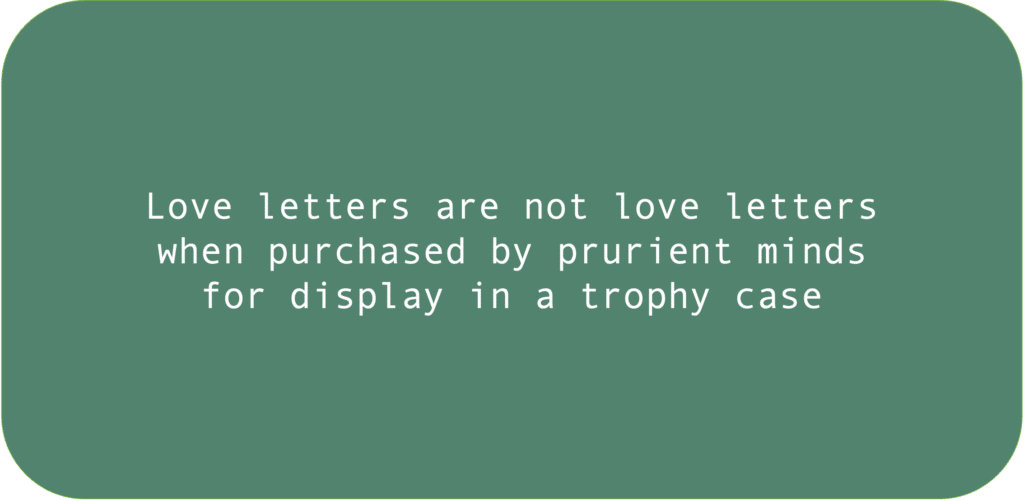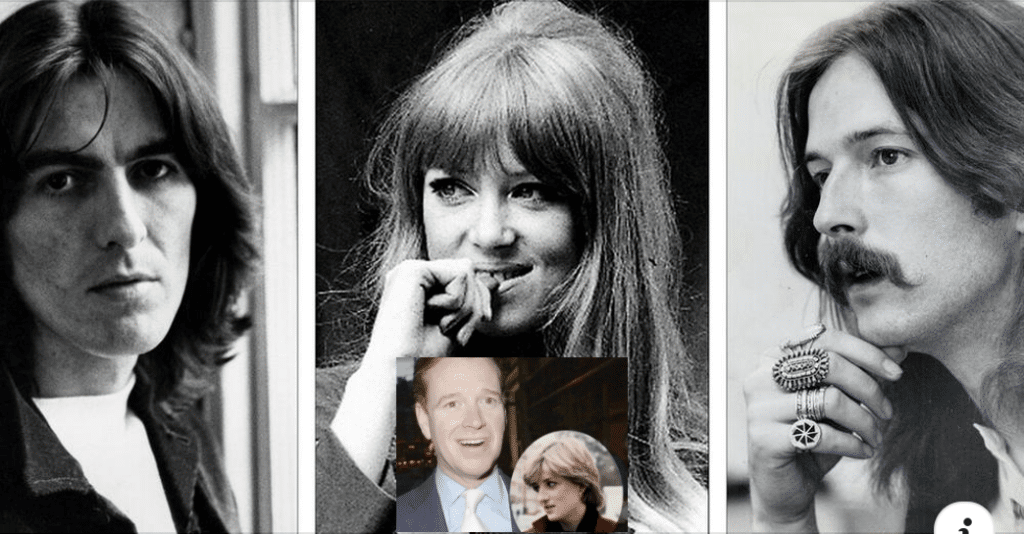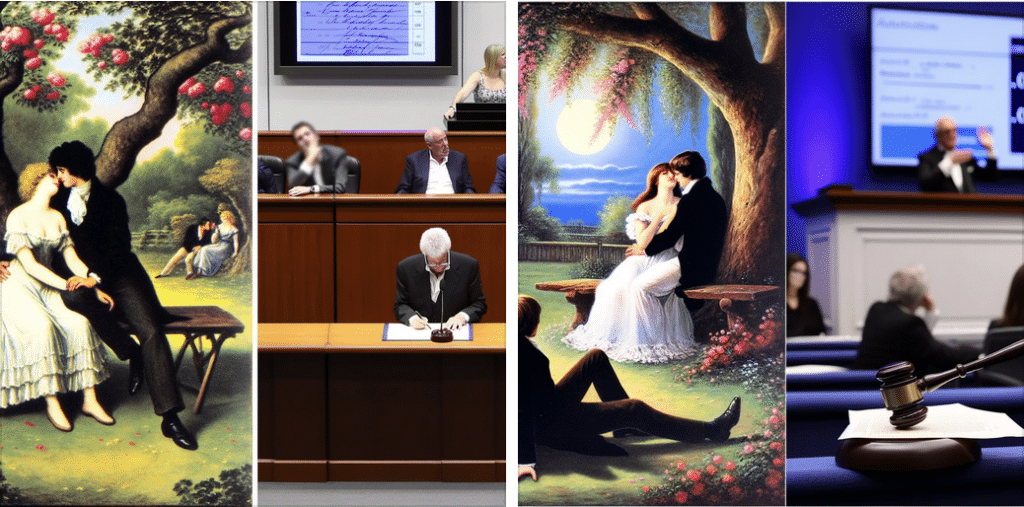
Selling love
Selling the love notes of a famous lover has about as much socially redeeming value as revenge porn. I’m no prude. I know full well that people have been selling sex since time immemorial. Doing so is and always has been an honorable profession.
But selling love is a different matter. And there’s nothing honorable about it. Except that, it’s just another feature of this age of social media, where nothing is too intimate to share with everyone.
And so, letters that once held whispered words of passion are now just another commodity. And in this transaction, we lose a little more of our belief in the sanctity of love.
Boyd auctioning Clapton’s love notes
Sadly, the news that Pattie Boyd is auctioning off the lovestruck letters of Eric Clapton is all too fitting.
Eric Clapton’s handwritten messages, being auctioned this week, shed light on how he wooed Pattie Boyd away from George Harrison and on the impassioned songs the affair inspired. … Boyd said she was parting with the intimate correspondence because she had moved on from that part of her life. ‘Eric wrote the most divine, beautiful letters, and I don’t want to keep reading them,’ Boyd said. ‘It hurts.’…
‘There was more romance years ago,’ she said. ‘I’m sure people do romantic things now,’ she added, ‘but I can’t imagine what they are. If you know, please tell me.’
(The New York Times, March 20, 2024)
But the auctioning of affection is particularly brutal in her case. After all, Boyd is the fabled muse of Clapton’s most famous song, “Layla.” Yet, here she is, selling off the very expressions of love that inspired that immortal track.

She points out that she asked Clapton for permission to do this. But that’s like Taylor Swift asking her ex-boyfriends for permission to use them as fodder for lyrics in her songs. They all know saying no would only make the intended betrayal sweeter for her.
This situation mirrors the age-old dilemma, often played out in classical literature, where a partner coyly seeks ‘permission’ for an affair. And let’s face it, it’s typically a woman manipulating her lover’s consent for her to betray him.
You’ll recognize this art of cuckoldry if you’ve read Anna Karenina by Leo Tolstoy, Madame Bovary by Gustave Flaubert, or The Great Gatsby by F. Scott Fitzgerald. Relationships are rife with complex emotions and societal pressures, where consent is often mired in layers of obligation, expectation, and power dynamics. These literary examples dramatize it all.
Boyd’s own manipulation of consent reeks of drama. She claims she’s auctioning Clapton’s love notes because they are just too painful to keep. But that makes about as much sense as claiming you’re selling your child’s baby shoes because you can’t bear to remember them crawling.
Hewitt peddling Diana’s letters
After years of wheeling and dealing, Major James Hewitt has finally snagged a buyer for Princess Diana’s intimate letters. Poised to cash in on the ever-inflating Diana memorabilia market, these letters could rake in a tidy £780,000. There’s no sugarcoating consent here—it’s a naked sprint to the auction block.
Say what you will of Boyd; she’s at least pretending to be a thoughtful ex-lover. On the other hand, Hewitt is living up to his reputation as an unapologetic cad. Hell, he once offered these letters as collateral for a loan.
The unromantic truth
In her chat with the Times, Boyd waxes nostalgic about the lost art of romance. Her projection is so flagrant it’s almost charming. After all, here she is, engaging in the least romantic act imaginable: selling love letters.

It’s a cold, calculated transaction that strips away any veneer of nostalgia or sentiment. It’s as if Boyd is holding a garage sale, where the highest bidder can own a piece of her heart—or what’s left of it.
It’s arguable that Clapton shares more intimate feelings in his songs. However, as an artist, he enjoys the plausible deniability others like Swift thrive on. And there’s no substitute for controlling the sharing of such intimate feelings.
Clapton’s silence is as deafening as Diana’s
Boyd claims she asked for Clapton’s permission. But there’s zero indication he gave it. Notably, the Times says he refused an interview request for its rather lengthy article on Boyd auctioning his love letters.
To appreciate the dynamics afoot, consider this: How would you feel if you suddenly became famous and one of your ex-lovers asked permission to sell your sexting exchanges to the highest bidder? After all, even if you said no, as any sane person would, what recourse would you have if she went ahead anyway? None.
Frankly, the living Clapton had about as much say as the dead Diana in selling their respective love letters. Even so, the feeling of betrayal in both cases is palpable.
In a world increasingly commercial and less inclined towards preserving the sanctity of personal relationships, these actions serve as a reminder of the ever-blurring line between private affection and public spectacle.
The betrayal of trust in both instances highlights a saddening trend: the crass monetization of what should have been cherished memories, locked away in the heart, not shared on social media, or, worse, auctioned to the highest bidder.